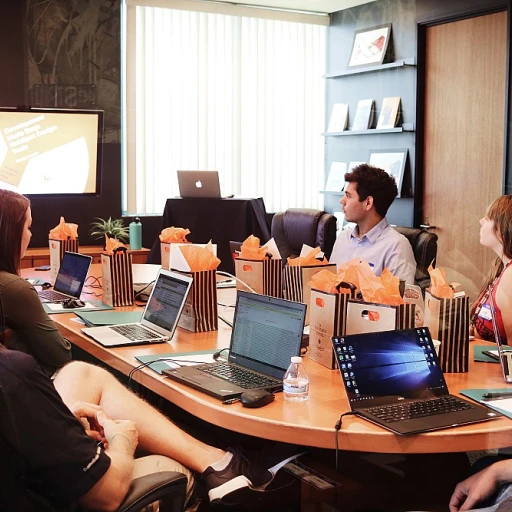
Understanding the Role of Medical Home Networks in Healthcare
Foundation of Health Care Delivery
Medical Home Networks (MHNs) have become pivotal in facilitating seamless health delivery, focusing on patient-centered care. Establishing strong networks among healthcare professionals, such as doctors, nurses, and support staff, MHNs work to improve outcomes for patients while optimizing care services. These networks emphasize integrated care across multiple locations, including hospitals, clinics, and other health centers.Comprehensive Approach to Care
Based care provided by MHNs aims to streamline patient experiences by catering to diverse health needs, from preventative care to chronic disease management. They act as safety nets in their communities, especially where hospitals and traditional health services may not reach. Their focus on long-term health outcomes helps reduce overall healthcare costs while ensuring quality and efficiency.Efficient Coordination within Networks
By maintaining a coordinated approach to health care, MHNs ensure continuity of care. This involves collaborative efforts between different healthcare services and smooth information sharing—upholding privacy policy standards at all times. The networks' ability to create cohesive medical talent teams, including full-time staff and travel nurses, enhances their capacity to offer personalized patient care. To know more about how medical home networks work with human resources to strengthen their team dynamics, you might want to explore this resource on navigating the world of human resource staffing agencies.Challenges in Tech Talent Acquisition for Medical Home Networks
The Complexities of Tech Talent Acquisition in Medical Home Networks
The healthcare industry has particular challenges when it comes to tech talent acquisition, especially for medical home networks (MHNs). These networks are at the cornerstone of healthcare transformation, focusing on patient-centered care that demands a specialized pool of digital talent. The following factors contribute to the complexity of acquiring tech professionals in this sector:- Demand vs. Supply Imbalance: With the rapid advancement of technology in healthcare, there is a soaring demand for skilled tech professionals. Unfortunately, the pace of available talent does not match the industry's needs, creating intense competition among health care providers and MHNs.
- Specialized Skills Requirement: Tech roles within MHNs require a unique blend of healthcare knowledge and IT expertise. This includes understanding electronic health records (EHRs), telemedicine, and patient management systems to fully integrate tech solutions into the health care ecosystem.
- Compliance and Regulation: The health industry is heavily regulated, and tech candidates must navigate complex rules regarding patient data privacy and safety (such as the Health Insurance Portability and Accountability Act - HIPAA). This regulatory environment necessitates a deeper understanding of compliance from tech professionals.
- Geographic and Organizational Barriers: Medical home networks can be spread across various locations, which sometimes makes it necessary to look for tech talent willing to travel or relocate. This can pose a limitation when seeking full-time professionals who value stability and proximity to their work location.
Innovative Recruitment Strategies for Medical Home Networks
Revolutionizing Recruitment Approaches in Medical Home Networks
Medical home networks (MHNs) face growing challenges in acquiring top-tier tech talent amidst a competitive landscape. Achieving excellence in talent acquisition requires innovative strategies tailored to the unique needs of healthcare environments. Here's how MHNs excel in this intricate process.- Embracing Remote Work: The pandemic era has reshaped work norms, with remote and flexible positions gaining traction. MHNs can access a wider pool of tech talent by offering remote options, breaking geographic barriers typically confining recruitment efforts.
- Leveraging Social Media: Platforms like LinkedIn enable healthcare organizations to engage with potential candidates effectively. By promoting open jobs and sharing organizational values, social media serves as a valuable tool in building a strong network and community interest.
- Building a Talent Pipeline: Identifying potential candidates early and nurturing relationships over time ensures that MHNs have ready access to skilled professionals when vacancies arise. This long-term approach supports sustained recruitment success.
- Partnering with Educational Institutions: Establishing alliances with universities and tech schools can foster early career pathways into healthcare IT roles. Engaging future healthcare professionals during their studies can streamline their transition into the industry, benefitting both parties.
The Importance of Cultural Fit in Tech Hiring
Aligning Values for Success
In the ever-evolving landscape of healthcare, cultural fit has become a cornerstone of successful tech talent acquisition. Medical home networks (MHNs) are not just looking for skilled professionals; they are seeking individuals whose values align with the mission of providing quality health care. This alignment ensures that the team operates cohesively, fostering an environment where healthcare professionals feel valued and motivated.
Building a Cohesive Team
For MHNs, the importance of cultural fit extends beyond individual roles. It influences how the team interacts and collaborates, impacting the overall effectiveness of the health services provided. A well-integrated team is better equipped to handle the challenges of the healthcare industry, from supporting travel nurses to managing the demands of full-time medical talent.
Long-Term Retention
Ensuring cultural fit is not just about immediate job satisfaction; it plays a crucial role in long-term retention. When employees resonate with the network's values and goals, they are more likely to remain committed, reducing turnover rates and maintaining continuity in patient care. This is particularly important in MHNs, where building long-term relationships with patients is a key component of success.
Fostering a Supportive Environment
MHNs that prioritize cultural fit create a supportive environment that enhances job satisfaction and performance. By aligning recruitment strategies with the network's core values, they ensure that new hires are not only skilled but also passionate about the mission of providing high-quality, patient-centered care. This approach supports the network's ability to adapt and thrive in the dynamic healthcare landscape.













